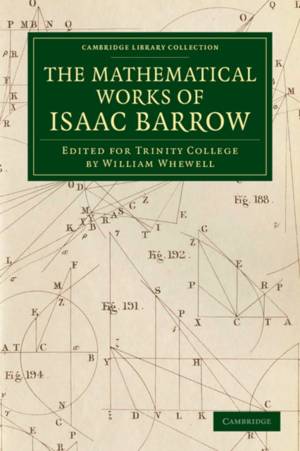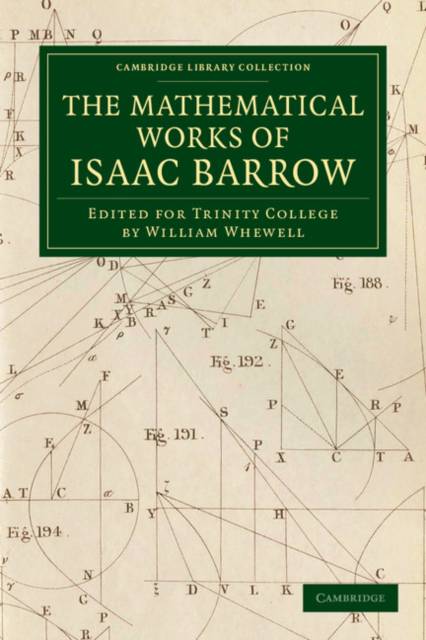
Je cadeautjes zeker op tijd in huis hebben voor de feestdagen? Kom langs in onze winkels en vind het perfecte geschenk!
- Afhalen na 1 uur in een winkel met voorraad
- Gratis thuislevering in België vanaf € 30
- Ruim aanbod met 7 miljoen producten
Je cadeautjes zeker op tijd in huis hebben voor de feestdagen? Kom langs in onze winkels en vind het perfecte geschenk!
- Afhalen na 1 uur in een winkel met voorraad
- Gratis thuislevering in België vanaf € 30
- Ruim aanbod met 7 miljoen producten
€ 149,95
+ 299 punten
Omschrijving
The Cambridge polymath Isaac Barrow (1630-77) gained recognition as a theologian, classicist and mathematician. This one-volume collection of his mathematical writings, dutifully edited by one of his successors as Master of Trinity College, William Whewell (1794-1866), was first published in 1860. Containing significant contributions to the field, the work consists chiefly of the lectures on mathematics, optics and geometry that Barrow gave in his position as Lucasian Professor of Mathematics between 1663 and 1669. It includes the first general statement of the fundamental theorem of calculus as well as Barrow's 'differential triangle'. Not only did he precede Isaac Newton in the Lucasian chair, but his works were also to be found in the library of Gottfried Leibniz. However, rather than considering arid questions of priority, scholars can see in these Latin texts the status of advanced mathematics just before the great revolution of Newton and Leibniz.
Specificaties
Betrokkenen
- Auteur(s):
- Uitgeverij:
Inhoud
- Aantal bladzijden:
- 788
- Taal:
- Engels
- Reeks:
Eigenschappen
- Productcode (EAN):
- 9781108059336
- Verschijningsdatum:
- 5/09/2013
- Uitvoering:
- Paperback
- Formaat:
- Trade paperback (VS)
- Afmetingen:
- 152 mm x 229 mm
- Gewicht:
- 1133 g

Alleen bij Standaard Boekhandel
+ 299 punten op je klantenkaart van Standaard Boekhandel
Beoordelingen
We publiceren alleen reviews die voldoen aan de voorwaarden voor reviews. Bekijk onze voorwaarden voor reviews.









